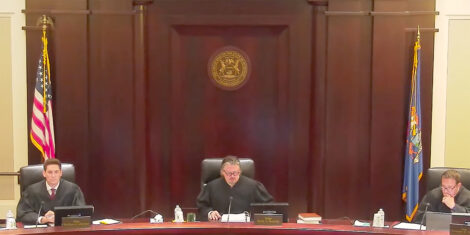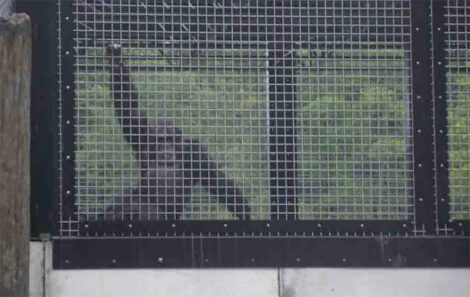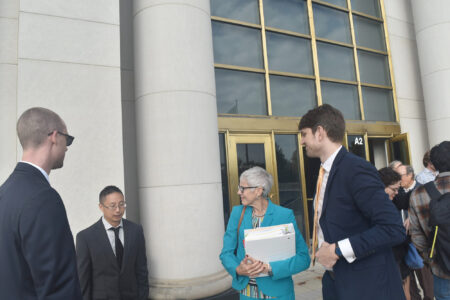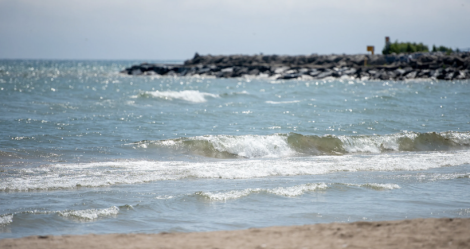Michigan appeals court rejects ‘person’ status for chimpanzees
Lawyers will appeal to state Supreme Court
- From left are Michigan Court of Appeals Judges Matthew Ackerman, Brock Swartzle and Christopher Trebilcock during a court session Oct. 14. (Screenshot via Michigan Advance)
- A chimpanzee identified as Tommy pictured in a 2017 letter by PETA to the USDA requesting an investigation of the DeYoung Family Zoo. | Courtesy of the Nonhuman Rights Project
- Lawyers representing seven chimpanzees at the DeYoung Family Zoo in Wallace, Mich. gathered outside the Michigan Hall of Justice after a hearing in their case Oct. 14. (Photo by Katherine Dailey/Michigan Advance)
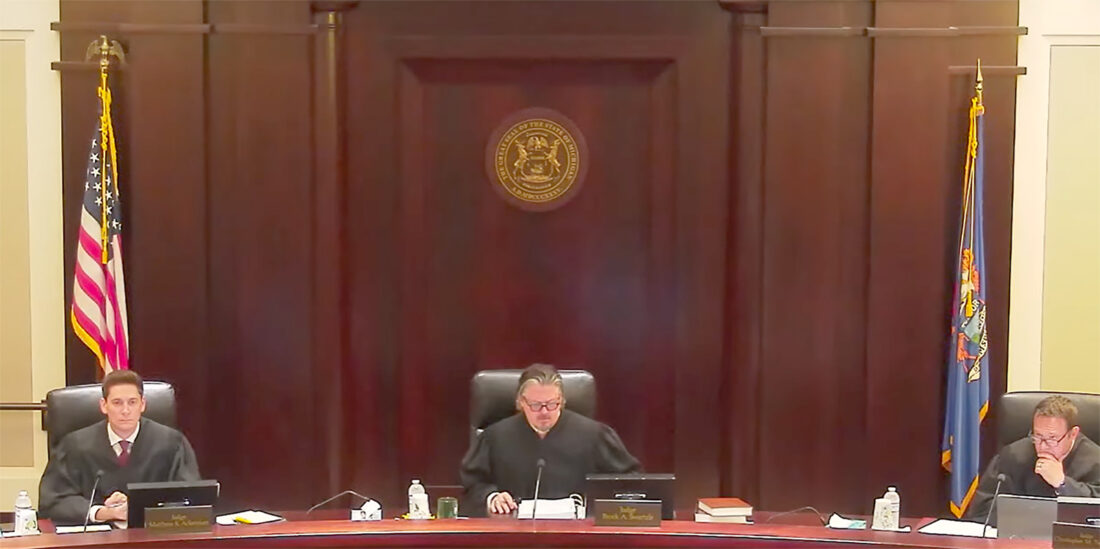
From left are Michigan Court of Appeals Judges Matthew Ackerman, Brock Swartzle and Christopher Trebilcock during a court session Oct. 14. (Screenshot via Michigan Advance)
The Michigan Court of Appeals has denied a writ of habeas corpus for seven chimpanzees currently at the DeYoung Family Zoo in Wallace, affirming a decision from the trial court that chimpanzees are not “persons” under the law.
The Nonhuman Rights Project, who are representing the chimpanzees, had been seeking a court order to show the merits of the case — but the appeals court judges called that argument “unpersuasive.”
“On the face of the complaint, the chimpanzees at defendants’ zoo are not eligible for habeas relief,” the decision read. “The chimpanzees are animals, and as the common law authorities all make clear, animals — including wild animals, such as these chimpanzees — are treated as property. No exception exists for ‘intelligent’ animals, which in any event has no natural stopping point.”
The question of that “stopping point” was a central point in a hearing for the case last week, in which judges questioned the argument of lawyer Jake Davis that autonomy should be the defining line of which beings have a right to habeas corpus.
The lawyers for the chimpanzees issued a statement criticizing this decision, writing, “The Nonhuman Rights Project is deeply troubled that the Michigan Court of Appeals declined to protect autonomy — a supreme value under Michigan law — when the autonomous beings are chimpanzees.”
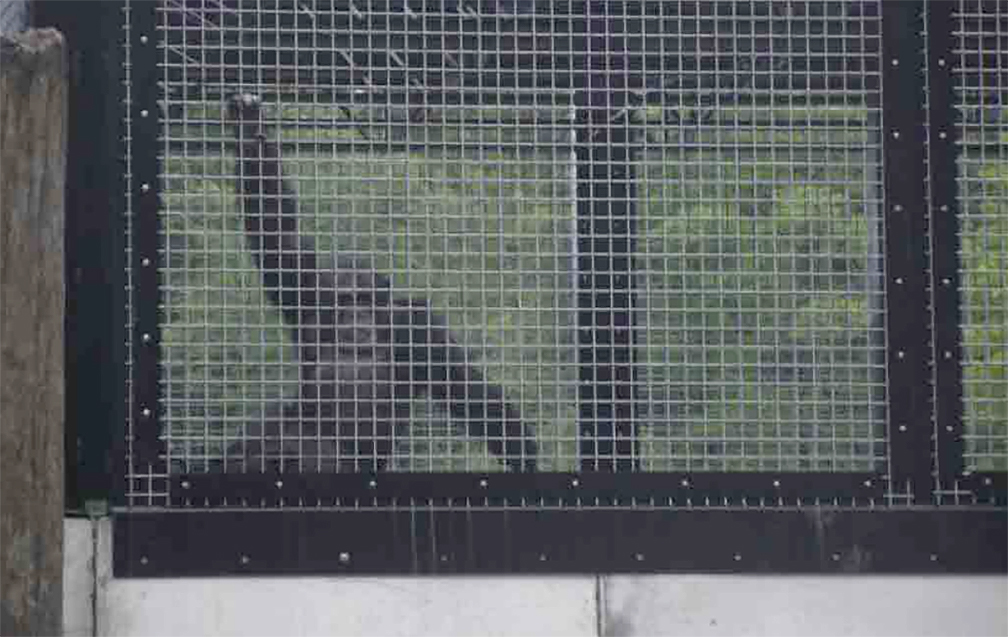
A chimpanzee identified as Tommy pictured in a 2017 letter by PETA to the USDA requesting an investigation of the DeYoung Family Zoo. | Courtesy of the Nonhuman Rights Project
“While the decision properly treated the issue of nonhuman eligibility for habeas corpus relief as one for judges to consider under the common law, the Court of Appeals held that it was bound by 19th-century Michigan Supreme Court precedent treating animals as mere property,” the statement continued. “The chimpanzees confined in the DeYoung Family Zoo deserve the law’s protection because they are autonomous beings whose suffering matters.”
In the hearing, Judge Brock Swartzle, the presiding judge, referenced the Nonhuman Rights Project brief’s argument that the case of the chimpanzees was analogous to issues around the rights of women and enslaved people.
In the decision, the judges specifically pushed back on that argument.
“Plaintiff’s analogies to habeas proceedings involving women or enslaved persons do not alter this landscape,” the court’s opinion reads. “Those episodes reflect failures to honor human personhood, not expansions of it beyond the human species.”
The Nonhuman Rights Project added in their statement that they plan to send the case to the Michigan Supreme Court, asking them to “reject this outdated classification.”
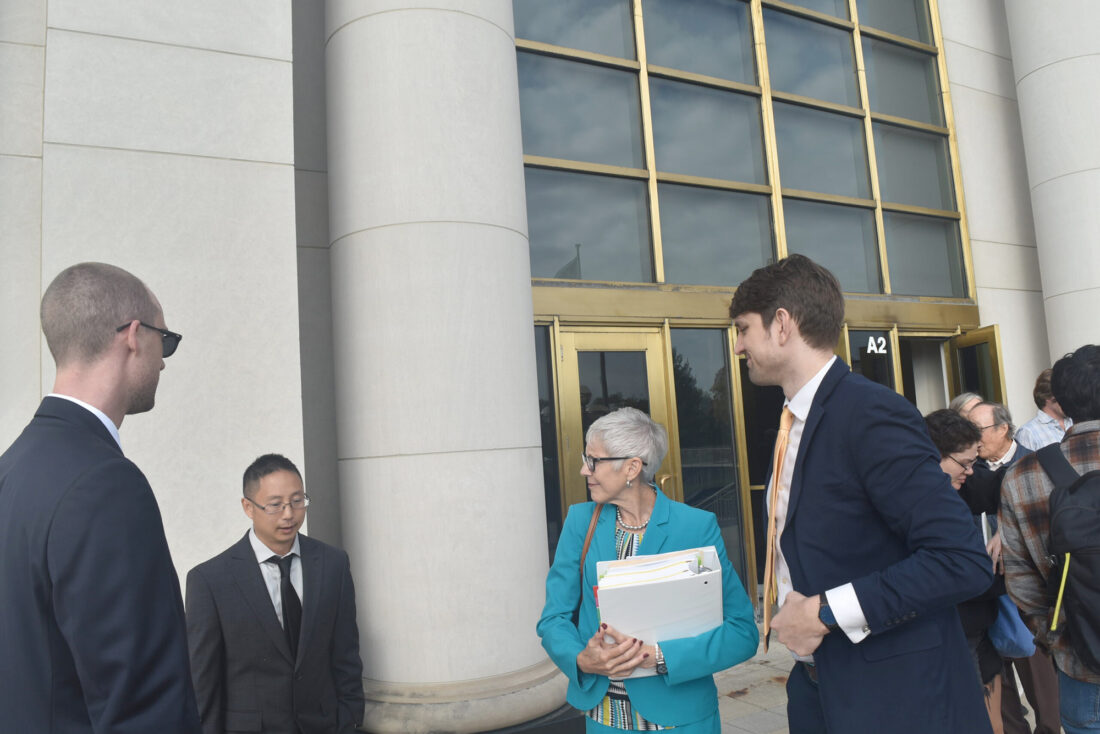
Lawyers representing seven chimpanzees at the DeYoung Family Zoo in Wallace, Mich. gathered outside the Michigan Hall of Justice after a hearing in their case Oct. 14. (Photo by Katherine Dailey/Michigan Advance)
The appellate court’s conclusion noted that “only our Supreme Court may revise that common law principle,” though they added that “plaintiff’s argument for doing so is in any event substantively unpersuasive.”
———
Michigan Advance is part of States Newsroom, a national 501(c)(3) nonprofit. For more, go to https://michiganadvance.com.

